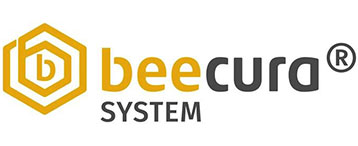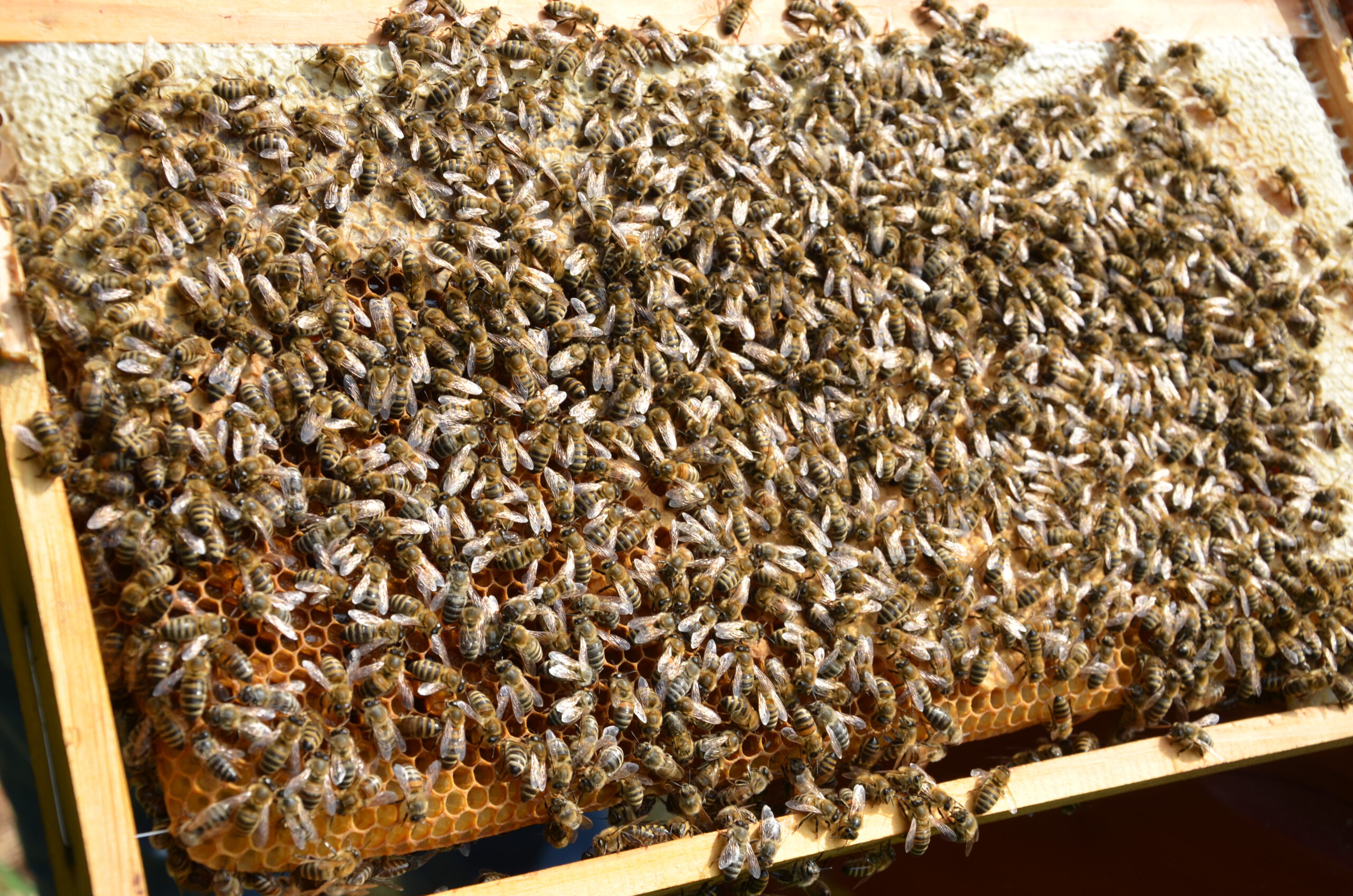Anyone who wants to use beehive air as part of apitherapy needs bee colonies – every beekeeper fulfils this requirement. For the best possible therapeutic benefit, however, other specific criteria must be met. This is especially true for the professional use of beehive air therapy. In this article, we explain the criteria and which requirements must be met from a beekeeping point of view.
What do I have to consider as a beekeeper, when using beehive air?
Patients inhale the beehive air directly from the beehive. Various active components from the beehive are dissolved in this air, such as bee propolis, beeswax, honey and bee pollen. Like the desired active ingredients, undesirable substances can also dissolve in the beehive air. For safe and successful use of beehive air for therapeutic purposes, required standards applicable in the following areas:
- Characteristics and origin of the bee colonies
- Beekeeping resources
- Hygiene and disinfection
- Beeswax and honeycomb construction
- Feeding
- Varroa treatment
- Apiary site certification
1. Characteristics and origin of the bee colonies for beehive air therapy
In principle, only healthy and vital colonies should be used in beehive air therapy which are from an organic or apitherapy-certified apiary. You can also use artificial swarms with at least 2 kg of bee mass and a young, strong and productive queen.
In order for a bee colony to be used as a therapy colony, it must occupy the brood box and at least one super box and be able to supply itself with sufficient bee propolis. Bee colonies weakened by swarming must not be used for beehive air therapy and must be replaced by stronger bee colonies. Queenless bee colonies may only be reinstated after they have accepted a new strong and productive mated queen.
2. Permitted beekeeping resources
The choice of equipment plays an important role, in order to avoid undesirable or even harmful substances in the beehive air. The following requirements apply:
- Beehives may only consist of natural materials and may not contain any foreign parts made of plastic, styrofoam or other artificial materials.
- Glue and paints for beehives must be free of harmful substances – natural colours based on linseed or wood oil, for example, are permitted.
3. Hygiene and disinfection
Hygiene is particularly important for the safe therapeutic use of bee colonies. The beehive material must be cleaned at least once a year. You do this by steam treatment or flaming. Before the start of the beehive air season, each bee colony is transferred into a cleaned and disinfected hive.
4. Beewax and honeycomb construction
The beeswax quality plays a major role in bee colonies that are used for beehive air therapy. Poor quality beeswax can lead to contamination with harmful substances. This is why particularly high standards apply to beehive air beekeeping:
- A separate beeswax cycle is essential to rule out contamination.
- New beeswax can be obtained from uncapping wax or drone honeycombs.
- Falsifications and residues must be ruled out through regular analyses. The “Food QM” certificate is used as a reference.
- If you cannot or do not want to reuse your own beeswax, you can use certified organic service providers and have your own beeswax processed by them.
- For honeycomb construction, you may use frames from your own colonies beeswax cycle with “BIO” (organic) certification.
- Natural honeycomb construction with starting strips made of your own beeswax or without starting strips is also permitted.
5. Feeding
When the last honey is harvested in the summer, the bees still need sufficient food reserves for the winter. Beekeepers can usually secure these reserves in different ways. For bee colonies that are used for beehive air therapy, at least 50% of the food reserves must be honey. For this purpose, for example, capped honey frames can be put back into the beehive during harvest and, if necessary, hung in the brood box.
The necessary honey reserves can be supplemented by feeding with organic bees food. Invert sugar syrup-based bee food is preferred here.
6. Varroa treatment
Systematic varroa treatment is an important part of beekeeping in the bee colony. This applies to beehive air beekeeping as well as to conventional beekeeping. Chemical-free beekeeping is necessary for a high quality of beehive air. The use of the acids is only permitted from October to April, but not recommended. Chemical-free beekeeping is possible!
These include:
- Removal of the drone brood
- Brood removal
- Using a Varroa Controller
7. Apiary site certification
Similar to organic beekeeping, beekeeping for beehive air therapy places high demands on the apiary location. This prevents the bees from introducing undesirable pollutants, such as pesticides, into the beehive. The BIO directive “Regulation (EC) No. 889/2008” is the minimum standard for beehive air beekeeping. It also forms the basis for certification by the German Apitherapy Association (DAB). In principle, there should only be little intensive agriculture within a radius of 3 km from the apiary location.
Conclusion
High standards in beekeeping practice apply for bee colonies that are to be used for safe and responsible beehive air therapy. These standards are based on the current standards for organic beekeeping and in some cases go beyond them. All specifications serve one purpose: to keep the beehive air free from undesirable or even harmful substances that negatively influence the benefits and success of beehive air therapy.




